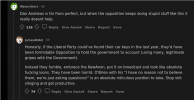Recovering from a fractured vertebra is no fun.
Jockey Corey Brown smashed two of them in a race fall in March 2019.
For two years, Brown harboured hopes of a return to the saddle, before undergoing spinal fusion surgery – and announcing his retirement – to ease the ”unbearable” suffering.
Premier Dan Andrews and his North Face jacket have been benched since he fell and fractured his T7 vertebra (as Brown did) 91 days ago.
Andrews was unsighted for the state budget, then the announcement and management of the city’s fourth lockdown. No longer, as he liked to say day in and day out, were we “in this together”.
For a “quintessentially political animal”, as a political scientist once labelled Andrews, his choice of silence seemed odd. Has he been in terrible pain? Almost certainly. Chronic pain sours the rosiest bearing. Raging chronic pain shreds the indomitable.
Yet 45 days can count as years in political terms, if not decades in a crisis. Andrews, or his army of advisers, posted no happy snaps in this time. There were no media interviews with doctors. No health updates.
Andrews resisted posting messages of thanks or support. He didn’t want to share. He did not challenge rampaging theories about the nature of his fall, which was addressed in a few lines soon after his March accident.
Rumours have predictably flooded the information vacuum. They have been largely unkind and defamatory.
People hadn’t heard this or that; instead, in fevered chatter, they “knew” that dodgy A plus iffy B explained Andrews’ radio silence.
They reviewed ancient history, and perceived holes in the presented narrative, to mount arguments about underhandedness and deceit.
The lack of their publication in mainstream press goes to the slipperiness of such claims. They could be entirely untrue. But they don’t explain Andrews’ decision to withdraw entirely from public view.
Apart from a couple of inconsequential tweets in recent days, Dan has enjoyed a Where’s Wally status of will he or won’t he, of what happened and what will happen. His absence has widened the divide for a divisive figure, and festered as another point of suspicion for a government that serves a largely suspicious electorate.
Andrews’ ubiquity through the prolonged crisis engendered stridency. He was the saviour or the culprit. Victoria’s Covid numbers, though breathtakingly high when compared with other states, sit kindly in the international order of despair.
Yet Andrews gave us private security for hotel quarantine, a grim reaper’s stroke of poor policy. He imbued a societal gloom that other states have avoided.
All governments keep secrets, especially those long in power. The Andrews government has repeatedly offered a take on events that smudges with realities it has sought to conceal. Mantras of transparency and accountability belie a recurring theme. With Andrews, there’s a view that there is more to the political story, and the motives at play, than what he sometimes presents.
Everything good or poor has centred on Andrews alone in six years as leader. He has been a Bob Dylan of politics in Australia, a lone figure who plays piano and harmonica, while writing lyrics delivered in a voice that stamps the times.
They might have been a changing when health minister Jenny Mikakos resigned and suggested we treat Andrews’ version of failings with caution. Yet it didn’t matter. Andrews was a one-man band. He wasn’t going anywhere.
If we accept the official version, Andrews has been in constant contact with his fill-in, James Merlino. Indeed, it sounds like Merlino gets the phone call three or four times a day, the kind of frequency that might inspire a derogatory name change on the receiver’s phone.
ALP ministers are said to have relished the freshly consultative processes under Merlino. Yet the handling of this lockdown, compared with the first three, bears similarities to the Andrews embodiment of government.
Health and political imperatives have blended. The supercharged rhetoric of virus variants and their virulence has scared the bejesus out of parts of the electorate.
The Kappa variant, as it’s now known, was called a “beast” by chief health officer Brett Sutton, which limits labels for the more dangerous strain, known as Delta, which has since been identified in Melbourne.
We were spared some of the pettier restrictions of previous lockdowns, such as night curfews and the keeping apart of loved ones. Merlino has had one big advantage, of course. He boasts contact tracing teams that have not been engulfed by case numbers and paperwork.
Invisibility of an Australian politician, as Andrews has chosen, is almost unprecedented.
The most notable absence was Adair Blain, who was given leave from 1943-45. He had a good excuse – he was a prisoner of war.
In 1903, Senator John Ferguson, who was seriously ill, lost his seat after he was absent without leave for two months.
When Andrews returns, he will take back control of a crisis that will run for years. Will he address the black hole of his absence, or will he dismiss it as a no-go zone so that it thrives as one of many?


